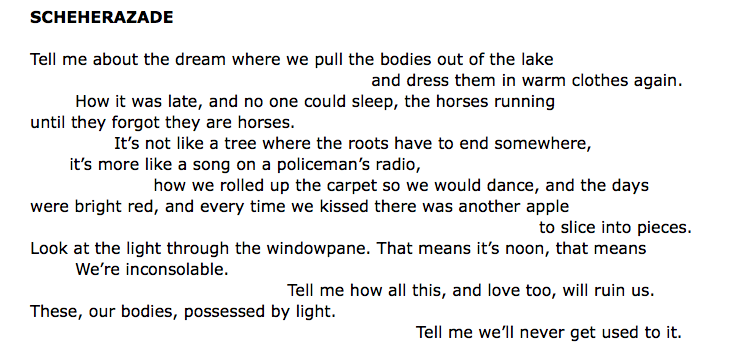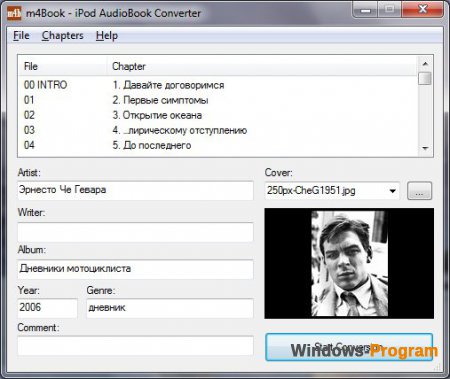Crush Richard Siken
I.
Richard Sikens Crush, selected as the 2004 winner of the Yale Younger Poets prize, is a powerful collection of poems driven by obsession and love. Siken writes with ferocity, and his reader hurtles unstoppably with him. His poetry is confessional, gay, savage, and charged with violent eroticism. Richard Siken is a poet, painter, filmmaker, and an editor at Spork Press. In her profile of Siken, Nell Casey wrote, “he effectively juxtaposes holy wishes with mundane images—making them both seem beautiful by some strange lyrical alchemy.”.
Blood and leather. A back-alley stabbing at an innocent dance on a courthouse lawn. Witty asides. Dread so palpable you can practically hear the slow creep of chords in the diminished fifth. It’s no coincidence that Richard Siken’s Crush, winner of the 2005 Yale Younger Poet prize, can be described with the same vocabulary as an episode of Buffy the Vampire Slayer: like the long-running series, Crush is a self-consciously campy work that has become a cult classic.


People who claim not to like poetry go out and buy Siken’s book after reading a single poem, which has likely been have blogged and re-blogged with a short introduction that asserts this is one of the blogger’s absolute favorite poems of all time. Scholars and poets also frequently describe their relationship to Siken in superlative terms: one writer included Siken on a list of poets who changed my life, while another poet writes that she “literally carried Crush everywhere I went for three or four years.” After a ten-day stint at a writers conference, no fewer than five poets directed me to Siken, his name coming off their lips with the same tenderness allotted to a lover:
“Have you read Richard Siken?”
“You know what you’d love? Crush by Richard Siken.”
“Have you heard of Richard Siken?”
“Has anyone ever told you to read Crush by Richard Siken?”
“You should read Siken.”
Film critics identify cult classics not only by a devoted fanbase, but also in large part by the transgressiveness and marginality of the content. Crush is a book by a gay male poet that creates a vivid portrait of violent, BDSM-influenced male sexuality; by thus flouting traditional social norms, Siken’s book lands firmly within the critical definition of a cult classic. It’s not surprising that, as a gay man coming of age in the post-Rocky Horror era, Siken chose to borrow images and rhetoric from the camp aesthetic. It’s more surprising that, in drawing up on the tropes of the genre, Siken created his own cult classic.
II.
According to Susan Sontag’s classic essay “Notes on Camp” (1964), “The essence of Camp is its love of the unnatural: of artifice and exaggeration.” Given this definition, one might say that camp’s natural habitat is the stage (or, today, the cinema)—for the theater, as a space in which men costume and disguise their true selves to enact fictions before a complicit audience, has long been associated with duplicity and histrionics. Sontag continued on to write that “Camp sees everything in quotation marks.” As a culture whose prevailing sensibility is epitomized by the air quote, we have embraced camp so heartily that what started off as a symbol of the counterculture has fully permeated the mainstream. The 1990s produced the popular TV shows Buffy, The X-Files, and Charmed, now often held up as camp artifacts, as well as the Austin Powers and Scream franchises, which were at the forefront of a growing trend toward intentional camp. Even the midnight viewing of Rocky Horror is no longer an event restricted to misfits and non-comformists; instead it has almost become a teenage rite of passage.
Although not all campy films are cult classics, all cult classics are considered campy. What links movies like Barbarella, Clockwork Orange, Bride of Frankenstein, Heathers is the size and scope of their ambition—expressed not only in visual exaggeration, but also in their fantastic storylines, which seem too outlandish or impossible to be believed. Contemporary film directors are all too aware of the correlation between camp and cult: in their attempts to create so-called instant cult classics, they produce films like Snakes on a Plane, which, although they might not go on to become cult hits, are widely viewed as pure camp.
III.
Almost every poem in Crush is a movie on paper. I mean that in a concrete sense: Siken writes with a precise, filmic imagery and a screenwriter’s terminology. You could say, as Sontag says about camp, that Crush “is the farthest extension, in sensibility, of the metaphor of life as theater.” Or, rather, life as film. And not just any film, but a campy genre film. Which genre depends on the poem. There is the melodrama:
We’re filming the movie called Planet of Love—
there’s sex of course, and ballroom dancing,
fancy clothes and waterlilies in the pond…
There’s a part in the movie
where you can see right through the acting,
where you can tell that I’m about to burst into tears,
right before I burst into tears
and flee to the slimy moonlit riverbed
canopied with devastated clouds.
the horror film:
The radio aches a little tune that tells the story of what the night
is thinking. It’s thinking of love.
It’s thinking of stabbing us to death
and leaving our bodies in a dumpster.
the Western:

There’s smashed glass glittering everywhere like stars. It’s a Western,
Henry. It’s a downright shoot-em-up.
and the buddy movie:

It’s a road movie,
a double-feature, two boys striking out across America, while desire,
like a monster, crawls up out of the lake
with all of us watching, with all of us wondering if these two boys will
find a way to figure it out.
With this appropriation of cinematic lexicon and familiar, genre-specific tropes, Siken appeals to the modern appetite for visual camp and the satisfaction of recognition it provides. He also distances himself from the traditional poetic universe, which is stereotyped as serious and Romantic, with rhymed and metered lines about willows or swans. The casual reader of modern poetry isn’t comfortable in that Victorian world. Siken makes that reader comfortable by reproducing the claustrophobia of our atheistic, empirical, and media-saturated culture. He writes about sex and TV shows, sets his poems in parking lots and cheap motels, and uses long prose-y lines that give the sense of relative formlessness. Siken’s world is not a vast expanse of ocean and meadow, but rather a film set—
Crush Richard Siken Poem
He raises
the moon on a crane for effect, cue the violins.
That’s what the violins are for. And yes,
he raises the moon on a crane and scrubs it
until it shines.
or a room—
Everyone in this
room got here somehow and everyone in
this room will have to leave.
Free download Adobe Illustrator CC 2015 Adobe Illustrator CC 2015 for Mac OS X. Adobe Illustrator CC 2015 - Illustrator CC 2015 is available as part of Adobe Creative Cloud for as little as $19. Sep 02, 2020 Technical settings of Adobe Illustrator CC 2015. The full name of the software: Adobe Illustrator CC 2015 19.0.0 x64; Set file name: AdobeI IllustratorCC201519.0.064-Bit.zip; Full setup size: 1.7 GB; Setting Type: Offline installer / Full independent installation; Compatible architecture: 64 Bit (x64) The latest version was added on June. Free adobe illustrator 2015 for mac windows 7. Download the full version of Adobe Illustrator for free. Create logos, icons, sketches, typography, and complex illustrations for print, web, interactive, video, and mobile. Start your free trial today.
or a person—
They want you to love the whole damn world but you won’t,
you want it all narrowed down to one fleshy man in the bath…
It is a world where stylization, playfulness, and the theatricalization of experience have triumphed over what Sontag calls “the pantheon of high culture”: truth, beauty, and seriousness. It is a world where camp has replaced art. There is something safe and comforting in the smallness of this world; it is a world we recognize.
And yet, although Siken’s poems preference the built world over the natural, tend toward exaggeration, and approach serious matters with frivolity—although, in short, they sound a lot like camp—Crush transcends camp. Sontag writes that “camp and tragedy are antitheses,” and there is real tragedy at the core of Siken’s book: Crush was written partly as a response to the death of his boyfriend in the early 90s. In one of the poems excerpted above, I omitted a section that does not conform to the expectations of camp. That section, included below, hints at a depth and complexity that precludes the work from being classified as camp.
We’re filming the movie called Planet of Love—
there’s sex of course, and ballroom dancing,
fancy clothes and waterlilies in the pond, and half the night you’re
a dependable chap, mounting the stairs in lamplight to the bath, but then
the too white teeth all night,
all over the American sky, too much to bear, this constant fingering,
your hands a river gesture, the birds in flight, the birds still singing
outside the greasy window, in the trees.
There’s a part in the movie
where you can see right through the acting…
At “but then,” the sentence transforms from a description of a campy movie scene into a lyrical flight of fancy, which reads as a literal yearning to flee the nostalgia and kitsch of the set scene. This reading is reinforced by the sentence’s grammatical devolution into a series of fragments spliced together with commas: it is as if Siken is trying to escape from the confines of the sentence itself. The grammatical breakdown also speaks to the power of the emotions stirred up by the narrator’s recollection of the “you” addressed throughout the poem. He cannot translate the feeling, which is “too much to bear,” into a coherent sentence. Contemporary syntax fails him. Our cultural lexicon, with its focus on media and pop culture, fails him, too. In those four lines, Siken turns from the glamorous language of the screen to the poet’s conventional subject: the natural world.
Crush Richard Siken Online Pdf
Crush is full of these momentary glimpses of another world, an older, slower, and—perhaps—better one. A world not yet cut to fit our screens. You should read him.
Crush Richard Siken Pdf
Emma Winsor Wood is Editor of Stone Soup, the magazine for kids by kids. She lives in Santa Cruz, CA and tweets @emmawinsorwood. More from this author →
